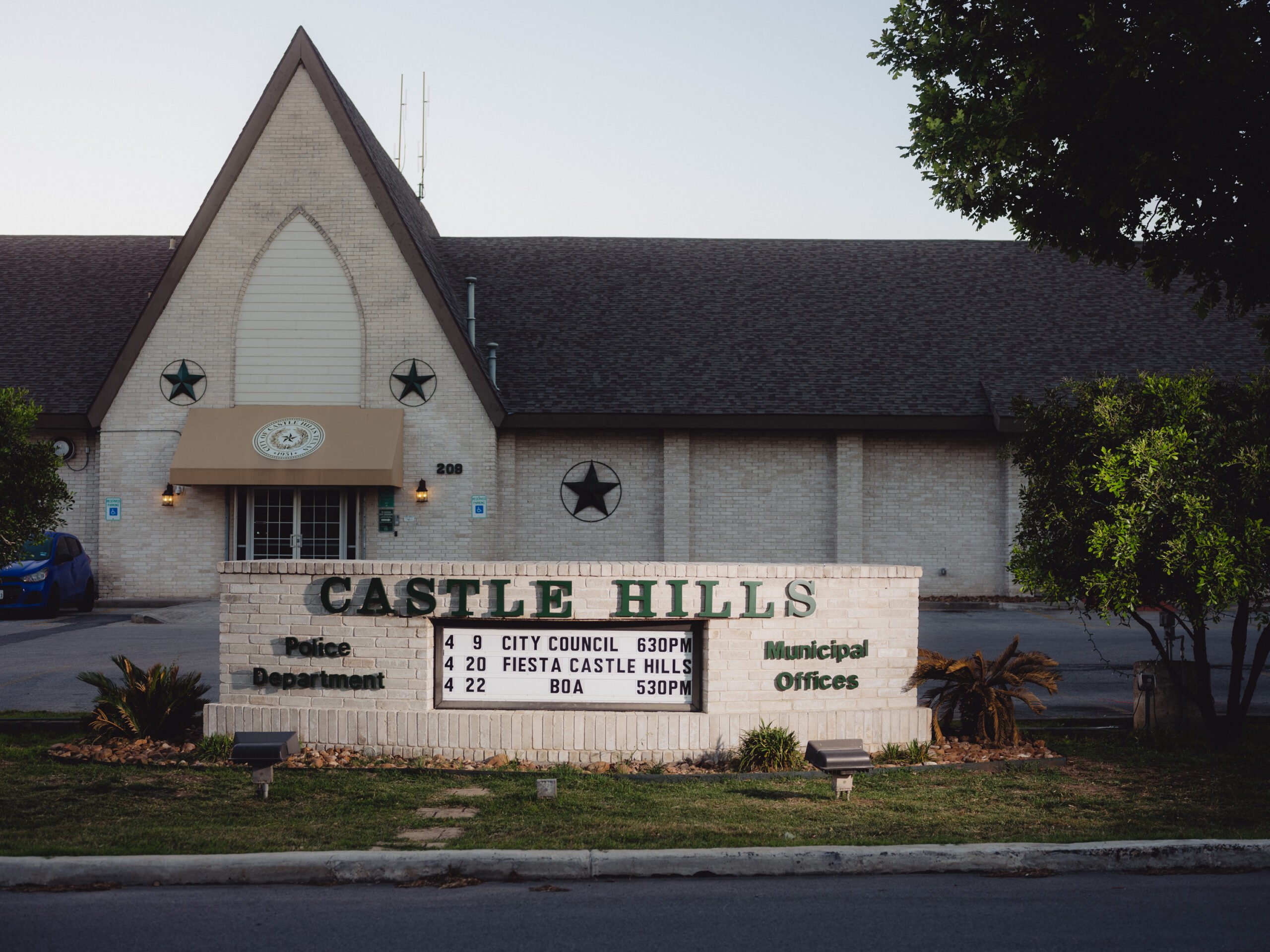ustxtxb_obs_1961_09_01_50_00002-00000_000.pdf
Page 8
THE TEXAS OBSERVER 7W=P;rt Published by Texas Observer Co., Ltd. Entered as second-class matter, April 26, 1937, at the Post Office at Austin, Texas, under the Act of March 3, 1879. SEPTEMBER 1, 1961 Willie Morris Editor and General Manager Bob Sherrill, Associate Editor Sarah Payne, Office Manager Ronnie Dugger, Contributing Editor EDITORIAL and BUSINESS OFFICE: 504 West 24th St., Austin, Texas. Phone GReenwood 7-0746. HOUSTON OFFICE: Mrs. R. D. Randolph, 419% Lovett Blvd., Houston 6, Texas. Published once a week from Austin, Texas. Delivered postage prepaid $5 per annum. Advertising rates available on request. Extra copies 15c each. Quantity prices available on order. Issue Rekindled In San Antonio MOST OF COST BORNE BY FEDS Welfare Chief Views Scene other hand, we are 38thor is it 40th? -in the average amount we pay in old age assistance. But that isn’t the whole picture either. New York’s average payments are much higher, but a feller must be in very bad shape to get on the old age assistance roles in New York, so naturally the payments would be higher. That’s about the way it works out: it’s easier to get on our roles, but you don’t get as much.” Although today the total Texas welfare program lags far behind the state highway program in expenditureswhich some critics, referring to the state’s slick web of farm-to-market roads, say indicates Texas “prefers pigs to people”the welfare program is nevertheless extremely complex and costly \(most of the cost being borne by the federal government, Aside from the old age assistance programunder which 221,000 old Texans receive aidWinters’ department doles out help to 6,200 “economically blind” people \(that is, people with less than one-tenth normal vision in their totally disabled persons \(this is a new program, started only in 1957 and Winters expects the number covered to double when word gets children. But this is only the beginning of the already existing welfare state. Winters’ department also polices those protective services for children who have been abused; that is, it supervises such things as the licensing of foster homes. The mere administrative processing of these licenses costs more than a quarter million dollars. Worse in Winter Also, his department receives surplus and purchase farm products from the federal government and then re-channels them to state hospitals \($1 million worth to these institutions alone and to county welfare offices for doling out to needy people. There are still some needy people arotffid, as witnessed by the fact that county welfare offices handed out food parcels in July to 188,681 Texanswith emphasis in South Texasa figure that will probably rise close to the quartermillion mark come winter. Participation in the school lunch program is a voluntary matter, but a school system would have to be mightily impoverished or perverted to pass it up since the only cost to the system is 30 cents per child per year, paid to the state just to cover administration expenses. Won’t Talk Clearly the blanket of welfare, though frayed in places and threadbare in spots, is being stretched to cover an’ impressive number of Texans. When does social welfare become socialism? Winters will not answer such q uestions. “I’m so busy administering, I haven’t time to philosophize. We just tend to our business. We let someone else do the philosophizing.” Nor will he comment on the consistency of those who demand that Washington stay out of Texas affairs even while welcoming federal contributions to state welfare programs. Again he says, “I just tend to my business.” Although the legislature appropriates all that it is constitutionally allowed to appropriate for welfarenearly $50 Millionthe state still depends on Washington for about ’70 percent of its welfare funds. As Winters explained it, federal aid is primarily given on a basis of comparative state poverty. Texas ranks 32nd in per capita income, so it is a favored recipient. Key Federal Role If it were not for the 1950 expansion of federal social security coverage, Texas would today be faced with supporting probably twice as many people on its old age assistance roles as it presently does. When Winters took over in 1944, more than 40 percent of the over-65 residents of Texas were receiving state assistance. After the war this had risen to 48 percent. Then social security coverage was expanded in 1950, and today the state pays its assistance to only 29 percent of those over 65with another 50 percent on the federal roles. “In other words, about ’19 percent of the over-65 group in Texas get a check either from us or from social security,” said Winters. On this he will comment. “I personally think this kind of aid is a good thing. I think it helps stabilize the economy; it is a steady income in the community, not affected by the ups and downs of the business cycle.” Will Bond, a Hillsboro hardware dealer and one of the three state welfare commissioners nominally Winters’ bosses is more outspoken about Washington’s part in the state program. He told the Observer: “I’m not against federal participation in a lot of things. The state just couldn’t do it alone. I don’t think Texas could raise enough money to do everything we’d like to do, even with Washington’s help, in fact. We’ll never have the absolutely ideal program. There are a lot of people you’d love to help, you know they need help, but you can’t help them; the amount we do is controlled by federal and state law.” When the medical vendor program goes into operation soon, federal participation in the state program will have reached a new and dramatic peak. In this too Winters steps out of his assumed role of impartiality and speaks approvingly. Additional aid to aged people in nursing homes, he feels, will upgrade the care given them. Watchdog Promised “They can’t get much nursing help with no more money than they get from old age assistance,” said Winters. “But if we can add another $50 or $60 to that, it should make a difference.” Furthermore, he said, the nursing homes will be forced to give good service or the state will cut off payments to them, and he means to see that they give the service “if we have to inspect them with our own people.” At present state health department inspectors police the nursing homes, but they have only a skeleton crew. Medical payments will also be made to old folks who are hospitalized. How much can be given, Winters does not yet know. “We’re working it out now. It’ll be like any medical insurance, a ceiling of so much for this kind of operation, so much for that type, so much for the room, and so on.” A number of officials around the capitol who have observed Winters’ rein from the beginning say that one reason for his success is his unwillingness to publicly “philosophize.” It makes for a somewhat cold facade. But there is another side to Winters, a side that has contributed probably even more to this ability to win the affection of such political and personal opposites as Allan Shivers and Ralph Yarborough. He has few close friends, but those few intimates know him as a veritable fund of current history, sports data, and parlor jokes. H. M. Totland, Austin businessman in the inner circle of Winters’ society, said: “On political matters, it’s hard to tell about him. Many a time I’ve said, ‘I’d like to know where you stand on that, Johnny.’ In politics, he’s got a real shell. But in other matters he’s a great conversationalist, a great joker. And ‘big hearted! I’ve seen him nearly shed tears over some individual welfare case that has come to his attention. He couldn’t have been more concerned if it has been in his own family.” Quite an Athlete Winters was born on a farm nine miles out of Stephenville and two miles from a public road. His parents were extremely devout Baptists and it left an impression on Winters that has not diminished. He is a deacon in the First ‘Baptist Church \(known to and teaches a Sunday school class with ex-Gov. Shivers. All his adult life he has been an officer in a Baptist church, either here or in Amarillo. He went to Tarleton and then to old Simmons University \(now playing football and baseball. He was a good athlete, but not so good as his brotherJess “TBone” Winterswho pitched for several seasons with the New York Giants. When Winters quit college at 19 to marry schoolmate Guydelle Vineyard, he signed with a West Texas pro team for a season before moving to the Panhandle where he first taught school, then was school principal \(“yes,” he said, “and I got away with it for ing into the wholesale grain business and into local politics. He was chairman of the Amarillo school board at the very bottom of the depression-1932-1933 but by cutting the top salaries he managed to keep the bottom ones up to a survival level. “We had a minimum salary of $100 a month for nine months,” he recalled, “and I think we never paid less than half of that in cash.” The rest was paid in warrants, which , merchants accepted as legal tender. Winters was not first choice when the state welfare job was open in 1943. He was third choice. But the legislature refused to approve the other two nominees. Whatever else he has got out of doing the welfare job, he also got a degree. Howard Payne made him an honorary LLD two years ago and Hardin-Simmons University, just 42 years after he walked off its campus, called him back this spring to give him an honorary doctorate of humane letters. “Whatever,” he said, obviously pleased, “that is.” B.S. paugh. Blythe’s position has been that the army is assisting in the seminar at the request of the Jaycees and, despite criticism, would continue to support it. He has cited statements by President Eisenhower that the American people are not sufficiently acquainted with the communist internal threat. Endorsement of the program by both the mayor and the city council have made it something of a civic function, the army has said. A high-ranking public information officer in Washington issued a statement to San Antonio’s weekly English-Spanish newspaper, La .Prensa, last month on behalf of Army Secretary Elvis J. Stahr. “The Fourth Army is not and could not be co-sponsoring a Jaycee seminarit would be against army policy,” the statement said. “The Fourth Army has ‘been contacted and they have stated to this office that they are not cosponsoring the seminar, and that they have never stated to anyone, including the press, that they were co-sponsoring the seminar.” The Fourth Army was participating only to the extent that it was lending “administrative assistance.” Nancy Phillips, La Prensa writer, has reported that Defense Department officials “are concerned about the conflicting reports and are making their own inquiries.” ‘Nothing Controversial’ Captain Lunz told the Observer he was called back to active duty from the reserves “to assist the Jaycees as a representative of the Fourth Army in any way I can.” Fourth Army participation in the project, he said, follows a 1958 directive from the National Security Council. The NSC policy paper of that year called for the mobilization of all government resources and of public opinion to oppose communism. The original paper and most of the subsequent orders from the Defense Department are still classified. Lunz said his function is “strictly one of co-ordinationassisting the Jaycees in looking up information on speakers, getting information on different materials, getting House Un-American Activities Committee reports and government publications.” The Fourth Army is participating in the program, he said, “as in any other civic function.” The co-chairman of the program for the Jaycees is Sam H. Harper Jr., a mechanical engineer in San Antonio. “In my opinion,” Harper said, “there’s nothing controversial about this seminaronly those who object to it.” Citing the 1958 directive, he said the project is part of the national defense strategy program. The Fourth Army “is one of the supporting organizations, along with the Navy, the Air Force, and the Marines. “The people who have opposed this,” he said, “say it’s political. The truth of the matter is, it’s not politicaland the idea of adding the military makes it more so.” Harper said the Fourth Army has been “very co-operative. Any Defense Department change hasn’t affected us.” He said attendance at the program “will also ibe poiht credit for reserve officers. “This whole thing on muzzling military leaders is something that disturbs me,” Harper said. “These are the people who have this informationas do the FBI, the House Un-American Activities Committee, and the Senate internal security committeethat the Communist Party, USA, is an adjunct of the Soviet Communist Party. “These speakers are all national anti-communist speakers,” he said. “There’s nothing political about them at all.” ‘Increasing Tendency One of the most vociferous,critics of the program has been County Cmsr. Albert Pena, who complained at a testimonial dinner in his honor a couple of weeks ago: “There is an increasing tendency of military men, both active and retired, to criticize the leaders of civilian government they have sworn to uphold.” He added: “Dictatorships are the result of rule ‘by the military.” Pena told the Observer this week he believes the Jaycees “have a right to have meetings or conferences on whatever they wish to espouse any views they chooseleft, right, or center. But the Fourth Army has no business in politics, and this is exactly what it is.” The military participation, he said, gives the seminar “a quasi-official status.” “We never have been able to find out whether the Jaycees invited the Fourth Army or the Fourth Army invited the Jaycees,” he said. And as a veteran Democratic politician might be expected to argue, Pena added: “If the Fourth Army brings in a man known to be a Republican to help organize this thing, why don’t they recall a Democrat too if it’s non-political?” Paul Thompson and Dick Meskill, two widely-read San Antonio columnists, have likewise registered complaints. Meskill, colum


